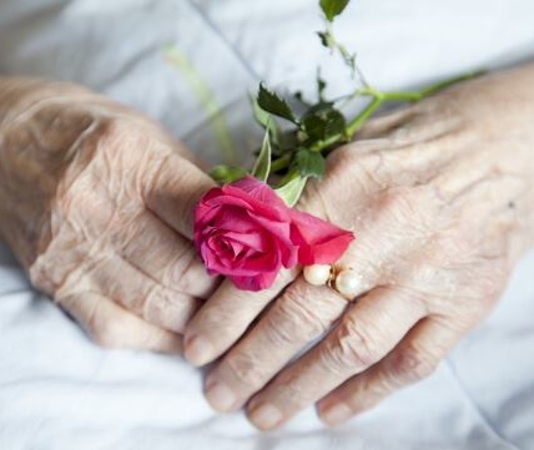It starts with a middle-aged man sitting next to an older woman. She’s clearly his mother. They are talking to someone who looks like a medical professional. Then he opens his mouth wide in a huge scream – but there’s no sound, just music. Then it’s a middle-aged woman sitting in a car. Next to her is an older man, her father, tubes in his nose for oxygen. She grips the steering wheel and there is another silent scream. This video is dramatic and unsettling, and according to the AARP, that’s the point.
The video is the beginning of a public service announcement that began running all over the country this summer. It’s a creation by both the AARP and the AdCouncil with the goal of making sure family caregivers get the help they need.
“We want to help caregivers self-identify because we know, by and large, they don’t. They see themselves as: ‘I’m just being a daughter,’ and ‘I’m just being a son,’” said Liz Bradley with the AARP.
Bradley says many of these sons and daughters are in the Baby Boomer generation and are helping their parents get to the doctor, manage their bills, cook meals, do laundry and many other daily activities.
“Many of the folks who do that type of work don’t identify as caregivers,” Bradley said.
Can You Relate?
The AARP joined with the AdCouncil to create the PSA because of the looming numbers of family caregivers and the increase that is coming in the future.
“This could rise to a major public health risk for these caregivers. They’re depleting their own assets. They’re having their own health issues when they are unsupported and frustrated and feeling alone,” Bradley said.
The average family caregiver is a woman, about 50 years old and provides about 20 hours of care a week. That adds up to $450 billion annually.
“We see the constant plight of the working caregiver – really seeing this 50-year-old woman who is almost putting in equivalent hours to a part time job,” Bradley said. “[She is] missing work and having her own health issues, pulling away from her own relationships and her own family to focus her time and energy to care for somebody else and not caring for themselves.”
The next goal of the PSA and the entire ad campaign is to get the family caregiver to ask for help.
“We realized caregivers wanted to have connections,” Bradley said. “With caregiving, things happen very sporadically and very immediately. You are sometimes thrown into a situation where you may not have others to talk with.”
You're Not Alone
To make sure there are resources for caregivers, the AARP put a great deal of information online at www.aarp.org/caregiving.
Bradley says the goal of the ad campaign is so family caregivers are “realizing that they’re not alone and that while you may want to scream, first of all, you can – and you should – and there are resources and information and people out there to help.”
The PSAs will run for the next three years, but there will be more of a presence on television in November after the presidential election. November is also National Family Caregiving Month. There are also print ads and two radio ads. The radio ads are very different than the television versions, but accomplish the same goal. One is a list of the things a family caregiver has to do every day, over and over in a difficult repetition and the other is a caregiver’s voice demonstrating what she says to others and what she is actually saying inside her own head. You can listen to the radio ads or look at the print versions at caregiving.adcouncil.org.
Bradley knows the television ad is shocking – the AARP felt the same way about it too. But they realized how well it works after showing it to actual family caregivers.
“They really responded to it. We really got them,” she said. “We weren’t trying to say: ‘We know what you are going through.’ We just tried to show what we are hearing from caregivers about the taxing emotional weight on them.”





